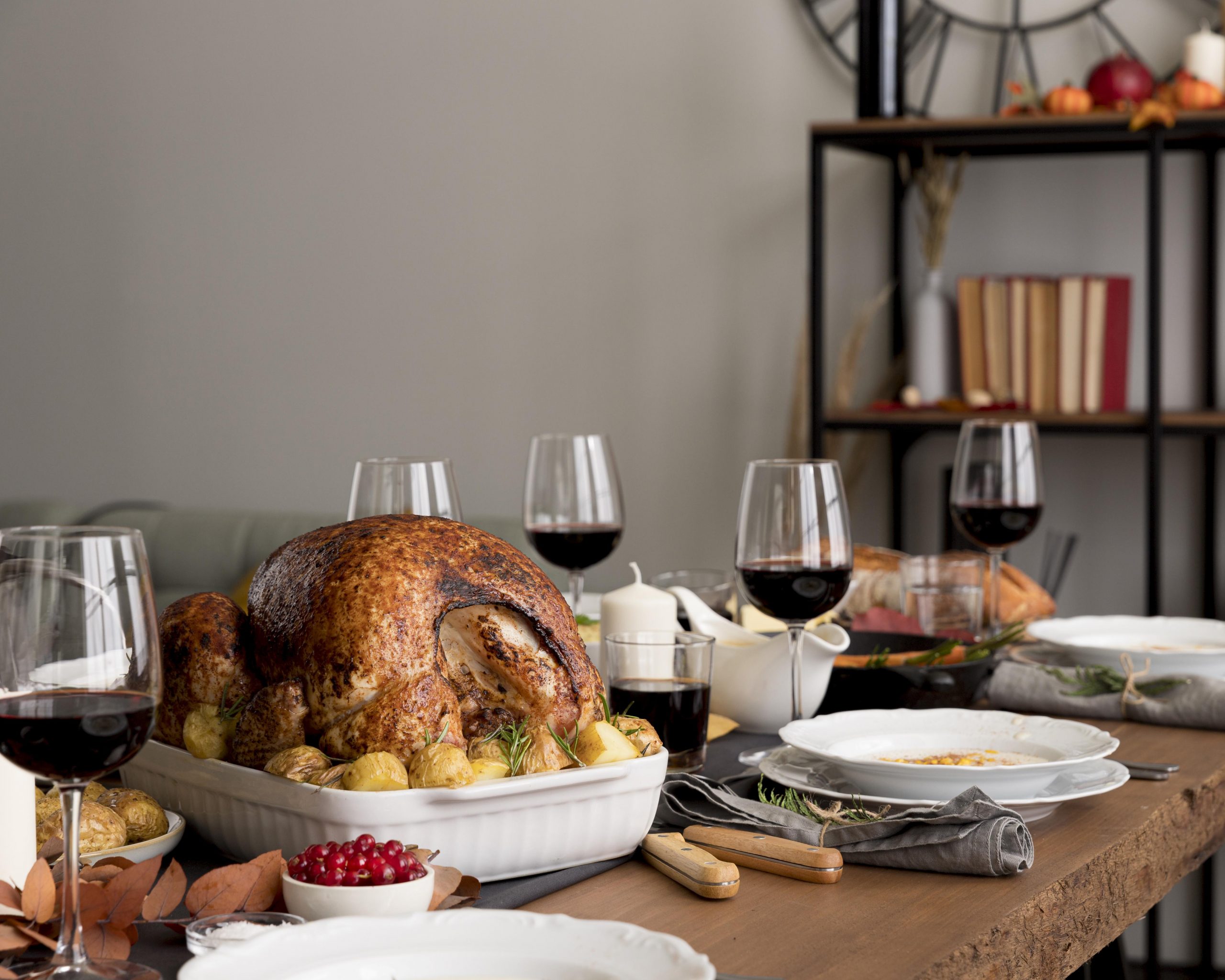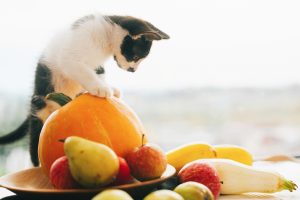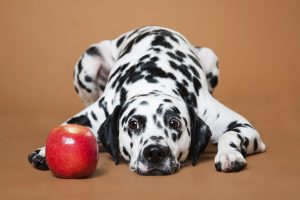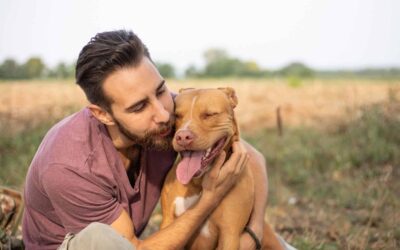Comprehensive List of Pet-Friendly and Hazardous Thanksgiving Foods

As pet owners, we all want to show our pets how much we love and appreciate them, especially during special occasions like Thanksgiving. It’s a time when we may be tempted to spoil our furry friends with special treats or even prepare a custom-made meal for them. However, it’s important to remember that our pets have different nutritional needs than we do, and some human foods can be harmful to them.
To help ensure your pets can also enjoy a Thanksgiving feast, we have compiled a list of suitable foods for your dogs and cats. Before serving new food to your pets, though, it’s always best to consult with your veterinarian to ensure it’s safe for them. Also, remember to serve them in moderation and avoid any added seasonings or spices.
With some planning and preparation, you can make this Thanksgiving special for you and your furry friend!
A list of Thanksgiving foods that are generally safe for pets
Turkey:
Plain, well-cooked turkey meat without any seasoning or bones is safe for pets. Remove the skin and ensure there are no added spices, onions, or garlic.
Sweet Potatoes:
Plain, cooked sweet potatoes are a good source of vitamins and should be given to pets in moderation. Avoid butter, salt, or any other seasonings.

Plain Pumpkin:
Plain, canned pumpkin is rich in fiber and can be beneficial for digestion. It can be added to your pet’s food in small amounts.
Green Beans:
Fresh or cooked plain green beans are a healthy and low-calorie pet treat.
Carrots:
Carrots (both raw and cooked) are a great source of vitamins and can be a crunchy, enjoyable treat for pets.
Plain Mashed Potatoes:
Plain mashed potatoes (without butter, salt, or other additives) can be shared with pets in small amounts.
Cranberries:
Fresh or plain, unsweetened cranberries can be given to pets in small quantities. However, some pets may not enjoy the taste.
Plain, Cooked Rice:
Plain white or brown rice can be a safe addition to your pet’s meal.

Apples (without seeds):
Apples are a good source of vitamins and can be offered to pets if the seeds and core are removed.
Cooked Eggs:
Plain, cooked eggs without any seasoning can be a protein source for pets. Avoid adding any butter, salt, or oil.
It’s essential to be aware of Thanksgiving foods that are unsafe for pets, as many human foods can be toxic to them. As much as we love to spoil them, we must be mindful of what we feed them and avoid giving them anything from the “do not feed” list.
A list of Thanksgiving foods that should be avoided for pets
Turkey Bones:
Cooked bones, including turkey bones, can splinter and cause gastrointestinal blockages or tears in a pet’s digestive tract. Always remove bones before giving any meat to your pet.
Onions and Garlic:
Vegetables like onions and garlic, whether raw, cooked, or in powdered form, can cause damage to a pet’s red blood cells, leading to anemia. This is particularly dangerous for cats and dogs.
Stuffing:
Stuffing often contains onions, garlic, raisins, and sometimes nuts, which can be dangerous for pets. Additionally, the high fat content in some stuffings can lead to pancreatitis in pets.
Sage and Other Herbs:
Sage and other herbs used in Thanksgiving dishes can contain essential oils that may cause stomach upset in pets.
Nuts:
Many nuts, including walnuts and macadamia nuts, can be toxic to pets. They can cause vomiting, diarrhea, and in some cases, more severe reactions.
Grapes and Raisins:
Grapes and raisins can cause kidney failure in dogs. Even small amounts can be toxic, so keeping these away from pets is important.
Chocolate Desserts:
Chocolate contains theobromine, which is toxic to both dogs and cats. Dark chocolate is especially dangerous. Ingesting chocolate can lead to symptoms ranging from mild excitement to seizures and even death.
Alcohol:
Alcoholic beverages, including those used in cooking, can be toxic to pets. Alcohol ingestion can lead to intoxication, depression, and, in severe cases, respiratory failure.
Dough and Batter:
Raw bread dough and cake batter can pose a risk to pets due to the yeast content. Ingested yeast can cause the dough to expand in the stomach, leading to bloating and potentially dangerous gas production.
Fatty Foods:
High-fat foods, such as gravy and fatty meat trimmings, can lead to pancreatitis in pets, which is painful and potentially life-threatening.
It’s crucial to keep all Thanksgiving foods out of reach of pets and to educate guests about not feeding them from the table. Always be cautious about potential allergies or sensitivities your pet may have, and ensure that the foods that are served are pet-safe and free from harmful additives or seasonings. Additionally, some pets may have specific dietary restrictions or health conditions, so consulting with your veterinarian is essential before introducing new foods to their diet.
Always prioritize your pet’s safety by being mindful of their dietary restrictions and potential toxicities. If you suspect your pet has ingested something harmful, contact your veterinarian or an emergency pet poison hotline immediately.
Odie Tip
Odie members receive 24/7 access to licensed televets by accessing their member portal. Simply log in and click the “24/7 online care” button to get started!



